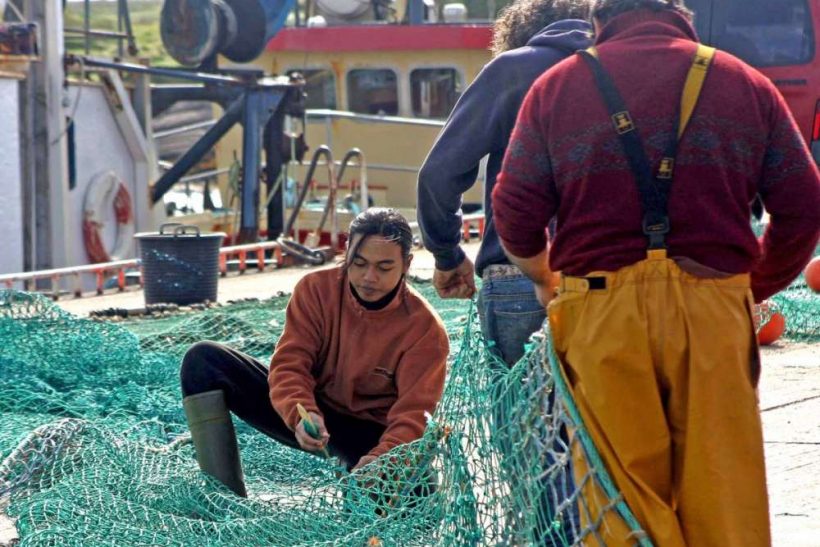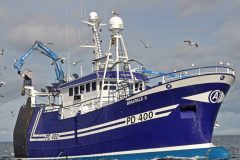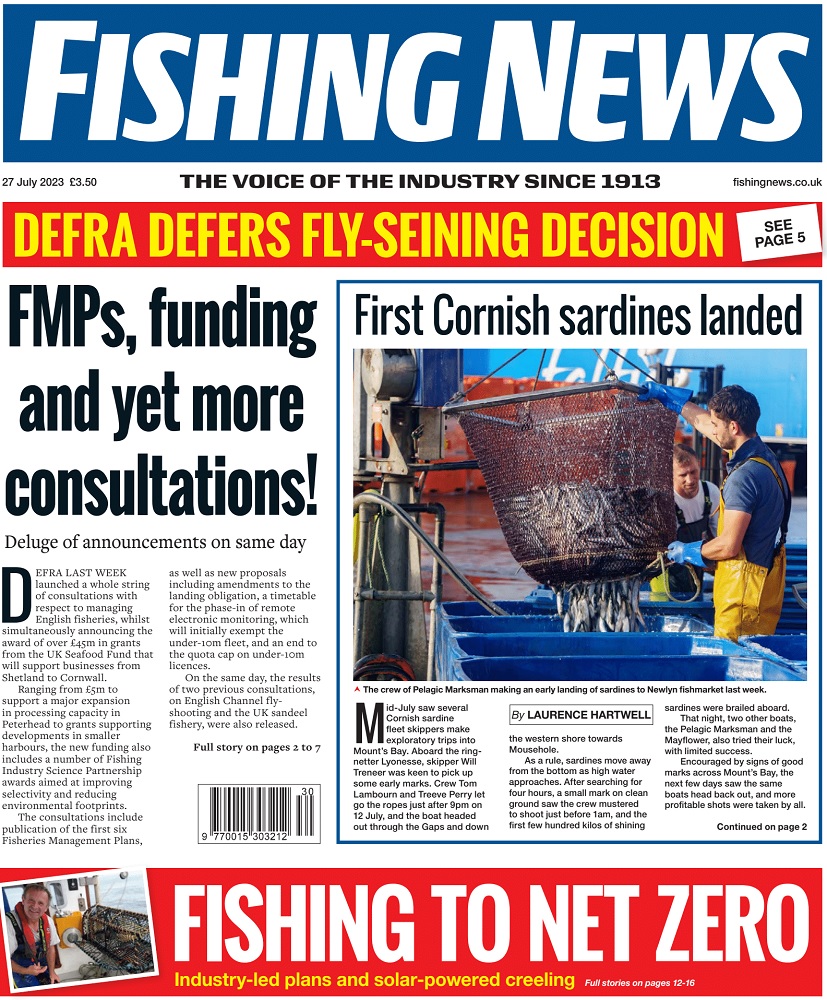The publication of a sensationalist story in The Guardian newspaper (2 November), titled: ‘Revealed: trafficked migrant workers abused in Irish fishing industry,’ that alleged wrongdoings by Irish vessel owners in relation to non-EU workers employed on their vessels, created an immediate and widespread response of anger, disbelief and furore throughout fishing communities in Ireland, reports Pauric Gallagher and David Linkie.
Above: Non-EU fishermen are highly-skilled, and are vitally important in Ireland.
The article, stated to be a culmination of a year-long investigation by a number of journalists at The Guardian, made unsubstantiated claims about conditions within the Irish fishing industry, basing the bulk of the story on allegations made by unnamed sources to create the required shock factor.
One paragraph in The Guardian stated: “Some migrant workers claim to have been deceived, and appear to have been trafficked onto trawlers for labour exploitation; an abuse that would be a form of modern slavery. Our evidence suggests that some boat owners and crewing agencies are smuggling African and Filipino workers into Ireland through entry points at London Heathrow and Belfast airports, before arranging for them to cross from Northern Ireland into the Republic by road, bypassing Irish immigration controls.”
Although it was very easy for The Guardian to toss out accusations of wrongdoing to give its story longevity, the consequence of such actions has had, and will have long into the future, a much more catastrophic effect on the fishing industry. The already struggling fishing industry has been left in a crisis by the ordeal, as orders for Irish fish and their derivatives are being suspended, and in some cases cancelled, by concerned buyers.
This depiction of the Irish fishing industry is not representative and those speaking in the interests of fishermen and fisheries organisations have come out strongly in defence of the industry and its fishermen.
While no one can say with 100% certainty that any abuse or mistreatment of these workers has never taken place, the overwhelming majority of those within the industry say that, if any abuses have taken place or are happening now, then they must be dealt with rigorously, and those culpable punished by the courts.
Francis O’Donnell, CEO of the Irish Fish Producers’ Organisation, said: “Having read the report, it seems probable that a very limited number of vessel owners may have mistreated some of their crew. Clearly we do not condone this, and will not support this type of alleged activity in any shape or form.”
He added, “The critical thing here is that we now engage with government to establish a mechanism to regularise the positions of any non-EU workers working within the industry. Being fully-documented will give them the necessary protections to ensure that they are not mistreated in any way.
“The government has made contact with the IFPO to open discussions, with a view to finding solutions. Minister Bruton and Minister Coveney are committed, as are we, to ensuring no one is exploited. Their response to date has been fair and practical, and I welcome this.”
A few days after The Guardian story was published, the trawler Renaissance was reported to have been detained at Howth, when enforcement agencies were on duty outside the harbour.
Read more news on the fishing industry, here.


The publication of a sensationalist story in The Guardian newspaper (2 November), titled: ‘Revealed: trafficked migrant workers abused in Irish fishing industry,’ that alleged wrongdoings by Irish vessel owners in relation to non-EU workers employed on their vessels, created an immediate and widespread response of anger, disbelief and furore throughout fishing communities in Ireland, reports Pauric Gallagher and David Linkie.
Above: Non-EU fishermen are highly-skilled, and are vitally important in Ireland.
The article, stated to be a culmination of a year-long investigation by a number of journalists at The Guardian, made unsubstantiated claims about conditions within the Irish fishing industry, basing the bulk of the story on allegations made by unnamed sources to create the required shock factor.
One paragraph in The Guardian stated: “Some migrant workers claim to have been deceived, and appear to have been trafficked onto trawlers for labour exploitation; an abuse that would be a form of modern slavery. Our evidence suggests that some boat owners and crewing agencies are smuggling African and Filipino workers into Ireland through entry points at London Heathrow and Belfast airports, before arranging for them to cross from Northern Ireland into the Republic by road, bypassing Irish immigration controls.”
Although it was very easy for The Guardian to toss out accusations of wrongdoing to give its story longevity, the consequence of such actions has had, and will have long into the future, a much more catastrophic effect on the fishing industry. The already struggling fishing industry has been left in a crisis by the ordeal, as orders for Irish fish and their derivatives are being suspended, and in some cases cancelled, by concerned buyers.
This depiction of the Irish fishing industry is not representative and those speaking in the interests of fishermen and fisheries organisations have come out strongly in defence of the industry and its fishermen.
While no one can say with 100% certainty that any abuse or mistreatment of these workers has never taken place, the overwhelming majority of those within the industry say that, if any abuses have taken place or are happening now, then they must be dealt with rigorously, and those culpable punished by the courts.
Francis O’Donnell, CEO of the Irish Fish Producers’ Organisation, said: “Having read the report, it seems probable that a very limited number of vessel owners may have mistreated some of their crew. Clearly we do not condone this, and will not support this type of alleged activity in any shape or form.”
He added, “The critical thing here is that we now engage with government to establish a mechanism to regularise the positions of any non-EU workers working within the industry. Being fully-documented will give them the necessary protections to ensure that they are not mistreated in any way.
“The government has made contact with the IFPO to open discussions, with a view to finding solutions. Minister Bruton and Minister Coveney are committed, as are we, to ensuring no one is exploited. Their response to date has been fair and practical, and I welcome this.”
A few days after The Guardian story was published, the trawler Renaissance was reported to have been detained at Howth, when enforcement agencies were on duty outside the harbour.
Read more news on the fishing industry, here.



